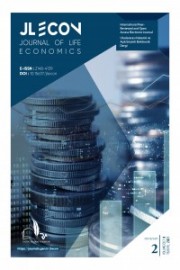Yalın altı sigma: Kavramsal bir derleme
Lean six sigma: a conceptual framework
Author(s): İhsan Akca, Ferruh TuzcuoğluSubject(s): Business Economy / Management, Methodology and research technology, Management and complex organizations
Published by: Rating Academy
Keywords: six sigma; lean management; lean six sigma;
Summary/Abstract: Being sustainable in today's business life has become the biggest goal of organizations. Ensuring customer satisfaction and stakeholder satisfaction in product and service delivery by providing competitive advantage has started to attract attention as an important priority not only for the private sector but also for public institutions. In this context, organizations can initiate the changes required by the age by applying post-modern management approaches and create proactive and reactive strategies by analyzing the environment. There are various methods used by organizations in this process. Six sigma concept is considered as a concept that advocates perfectionism and error-free in terms of providing customer satisfaction and increasing quality in many businesses, especially in production enterprises. On the other hand, lean production and management practices are also the art of embracing being free from elements that are not needed in the realization of activities. The Lean Six Sigma concept is a philosophy that focuses on business units and processes together. Lean Six Sigma advocates perfectionism and simplicity in all corporate processes by addressing the advantages of Six Sigma and Lean Management in a single managerial technique. In this research, it is aimed to examine Lean Six Sigma theoretically by considering Six Sigma and Lean Management techniques which are effective in the emergence of Lean Six Sigma concept. Referring to the studies on Six Sigma, Lean Management and Lean Six Sigma, it was concluded that the concept should be adopted and implemented in the private and public sector, not in a single process or unit, but in all institutions.
Journal: Journal of Life Economics
- Issue Year: 8/2021
- Issue No: 3
- Page Range: 299-307
- Page Count: 9
- Language: Turkish

